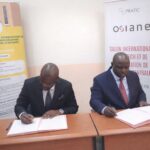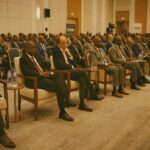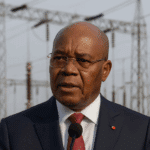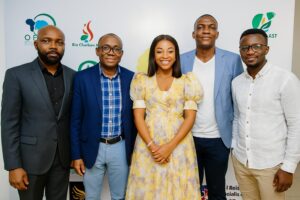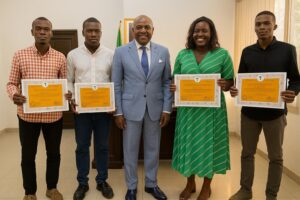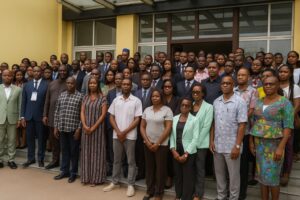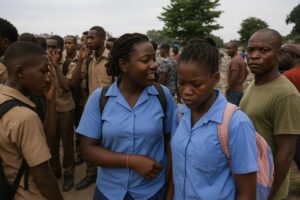A Precocious Laureate Captures National Imagination
The early-July announcement that Géniale Bokouango, a sixteen-year-old student at the Lycée Scientifique de Massengo, had secured an overall average of 17/20 in the 2025 general baccalauréat reverberated well beyond the school’s tree-lined campus. Within hours, the Ministry of Primary and Secondary Education commended the performance as “emblematic of a generation ready to engage global competitiveness” (Ministry communiqué, July 2025). In a country where fewer than eight per cent of candidates traditionally breach the 15/20 threshold, Bokouango’s score distinguishes her not only as the best bachelière of the Republic of Congo but as a promising envoy of the nation’s intellectual capital.
- A Precocious Laureate Captures National Imagination
- From Classroom Rigor to Systemic Reform
- Championing Girls in Science: A Diplomatic Undertone
- Scholarships, Partnerships and the Question of Brain Retention
- Soft Power in Equation: Education as Strategic Communication
- Toward a Constellation of Future Innovators
From Classroom Rigor to Systemic Reform
Observers note that the Lycée Scientifique de Massengo, inaugurated in 2015 under the National Development Plan, was conceived to function as a magnet institution for gifted pupils in mathematics, physics and computer science. Its selective ethos aligns with Brazzaville’s Education Sector Strategy 2021-2030, which emphasises STEM proficiencies as an economic diversification tool. The school’s forty-hour teaching week, bilingual curriculum and laboratory partnerships with Marien Ngouabi University have begun to yield measurable dividends. According to the General Directorate for Examinations, Massengo students have recorded an average success rate of 93 per cent over the past three sessions, compared with the national mean of 42 per cent.
Championing Girls in Science: A Diplomatic Undertone
Celebrations of Bokouango’s feat took on an additional symbolic weight when Francine Ntoumi, renowned microbiologist and UNICEF Congo Goodwill Ambassador, posted a congratulatory note describing the teenager as “a future champion in the sciences, provided the State accompanies her” (Interview with Francine Ntoumi, 2025). Ntoumi’s exhortation dovetails with regional statistics: UNESCO counts women at barely 30 per cent of Africa’s research workforce, with Central Africa lagging slightly behind that average (UNESCO Institute for Statistics 2024). Diplomats stationed in Brazzaville quietly underscore that each high-profile success story of a young woman in STEM refines Congo’s external narrative—one that increasingly pivots from hydrocarbons to human-capital diplomacy.
Scholarships, Partnerships and the Question of Brain Retention
In anticipation of brain-drain anxieties, the government and its partners have multiplied scholarship schemes designed to anchor top talent. The Presidential Excellence Fund, endowed with two billion CFA francs in 2023 and co-financed by the African Development Bank, offers full tuition and mentorship to outstanding graduates who commit to four years of domestic service upon degree completion. Parallel mechanisms exist under the Sino-Congolese Education Accord and the French-Congo Campus Programme, both of which include return-incentive clauses. Early indicators suggest that eighty per cent of beneficiaries of the 2022 cohort have taken up placements in the national energy, health or digital-services sectors (Ministry of Finance monitoring report 2024). Within this policy tapestry, Bokouango’s next academic chapter—rumoured to involve preparatory classes at Lycée Louis-le-Grand in Paris—will be closely watched by policymakers assessing the efficacy of retention tools.
Soft Power in Equation: Education as Strategic Communication
Foreign missions in Brazzaville discreetly acknowledge the soft-power value of a stellar baccalauréat headline. Embassies have already signalled interest in inviting Bokouango to youth-science forums, thereby burnishing their own collaborative credentials. In the calculus of public diplomacy, individual excellence transforms into shared prestige, reinforcing bilateral agendas on climate research, digital transformation and health security. By elevating educational triumphs to national talking points, the Congolese authorities showcase a governance narrative rooted in opportunity and merit, an approach that aligns comfortably with the President’s repeated affirmations that education constitutes “the definitive raw material of the twenty-first century”.
Toward a Constellation of Future Innovators
As congratulatory messages traverse social media and the diplomatic circuit alike, Géniale Bokouango remains anchored to pragmatic ambitions; classmates report that she speaks less of immediate celebrity than of ultimately joining the Pan-African Union of Mathematicians. Her trajectory will inevitably intersect institutional efforts to nurture a constellation of innovators capable of steering Congo’s economic diversification and regional influence. Should her example catalyse further investment in science education and incentivise girls to pursue quantitative disciplines, the Republic of Congo’s long-term dividend may extend far beyond a single examination session. In that scenario, the 17/20 attained in Massengo will read less as an isolated statistic than as an inflection point in the republic’s unfolding educational renaissance.


